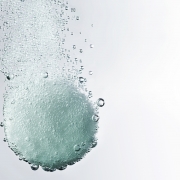Heavy metal poisoning is a potentially life-threatening condition. If you believe you are suffering from heavy metal toxicity, please discuss treatment options with your local health care practitioner.
A number of websites provide free databases of glycemic index values. Here is one of the more established, comprehensive ones:
http://www.mendosa.com/gilists.htm
Another website – designed by the University of Sydney – provides a searchable database where you can search by food name, glycemic index, or glycemic load:
http://www.glycemicindex.com/ (Select the GI database link from the left-hand menu)
Bioavailability is defined as the degree and rate at which a compound is absorbed into a living system or is made available at the site of biological activity. Different vitamins and minerals have different absorption rates regardless of whether they come from a tablet, liquid, powder, or food. Calcium, for example, has a relatively standard absorption rate (between 25 and 35 percent).
The delivery form does not generally make a significant difference if an individual is healthy and intakes are adequate. However, there are many factors that can affect the absorption of vitamins and minerals in the human body. Some of these factors are a function of the person taking the nutrient and are dependent on an individual’s age, digestive system integrity, overall state of health, gender, whether the supplements are taken on a full or empty stomach, and even the time of day.
People whose nutrient needs are greater – such as growing children, pregnant or lactating women, and those who are currently deficient – may have significantly enhanced absorption rates for certain nutrients. Even absorption of minerals from food sources can vary significantly. Boron, molybdenum, and iodine can be absorbed at over 90 percent, while the average absorption rates of zinc, copper, and selenium can range from 30 to 80 percent.
It should seem reasonable, then, that stating an overall absorption rate on a package or in advertising can be misleading.
A well-made tablet provides a very effective delivery system and is the chosen form of most quality multivitamins and pharmaceutical medications. Tableted products allow for a higher level of active ingredients – almost 3 times as much as a capsule and much more than a liquid or spray. In general, the stability of tablets is also superior to liquids.
USANA tablets are formulated to meet United States Pharmacopoeia (USP) standards, which require full disintegration within 30-45 min. They are also formulated to meet standards for dissolution. Because USANA tablets are formulated to these standards, the vitamins and minerals found in USANA supplements are properly absorbed into the body. Innovative formulations have been developed to optimize nutrient bioavailability.
Each lot of USANA tablets is tested against finished product specifications to ensure that it meets standards for identity, target weight, hardness, thickness, disintegration, potency, purity, and microbial counts. USANA provides its vitamins and minerals in amounts and forms so that, in conjunction with a healthy diet, customers will receive maximum bioavailability, full effectiveness, and uncompromised safety.
(Note: this article specifically targets multimineral and multivitamin formulations. There may be certain products, such as children’s medicine or single nutrients, that are appropriate in a liquid form. However, these are the exceptions and not the rule.)
It is not possible to provide a general recommendation on whether any particular athlete needs extra supplementation. Athletes can benefit from a good multivitamin/mineral product in the same manner as non-athletes. In many cases, athletes are more likely to eat a better diet, increasing their intake of key nutrients. However, the extra physical and mental stresses many athletes experience may also increase their requirement for certain key nutrients.
Either way, the recommended intake of the CellSentials or HealthPak should cover the basic nutritional needs of nearly all athletes. Although exercising increases oxidation to a certain extent, the body of an athlete who regularly trains is also more efficient at dealing with increased free radicals and may not need any more antioxidants than a non-athlete. Whether or not to supplement, and with which products, is a matter that needs to be examined on an individual basis, as it will depend on age, diet, training regimen, and other nutritional and health factors.
There is a great deal of misinformation circulating the internet regarding the role of iodine in radiation emergencies. It is extremely important for individuals to realize that chronic misuse of iodine supplementation can lead to serious health concerns. Large doses of iodine intake – like excessive intake of any other mineral – is not generally appropriate except under the supervision of a medical professional.
Iodine is an essential trace mineral. Iodine is found in trace amounts throughout the human body, but it is especially concentrated in the thyroid. 10-20 mg of iodine can be found in the average healthy thyroid.
Humans obtain iodine from a number of food sources, with increased levels coming from sea-based food sources (animals and plants). Because of its importance in human nutrition, iodine is commonly added to salt to help prevent deficiencies.
Unfortunately, certain types of iodine are not beneficial to human health. Iodine-131 (a very specific iodine isotope) is a radioactive byproduct of uranium fission. In certain extreme circumstances, iodine-131 may leak into the air or ground if a uranium-based nuclear power plant experiences severe structural or physical damage. Thankfully, iodine-131 has a relatively short half-life (8 days), limiting the primary risk of exposure to those in the immediate vicinity of the damaged plant.
Because the human body is unable to distinguish between safe iodine and iodine-131, it is possible for iodine-131 to enter the body and accumulate in iodine-rich areas, particularly the thyroid. (It is worth noting that trace amounts of radioactive compounds enter the body all the time, and the body has mechanisms for dealing with radioactive compounds in normal amounts.)
If the amount of iodine-131 that enters the body exceeds known safe levels, it is possible for the thyroid to accumulate iodine-131 in unsafe amounts. A relatively simple way to prevent this is to flood the body with high levels of good iodine (typically potassium iodide). Once the thyroid reaches “full iodine capacity,” it stops absorbing more, allowing unsafe iodine-131 to be excreted instead of absorbed. Iodine supplements designed specifically for radiation treatment typically provide a 130mg adult dosage. (Note: USANA products have a much smaller dosage of iodine and should not be taken with the intent of high iodine dosing.)
While this procedure may seem straightforward, there are specific criteria that must be met before flooding the body with iodine, because excessive iodine intake is not without consequences. Many government organizations have issued excellent guidance on this topic; a very concise FAQ on the topic is available from the U.S. Department of Health & Human Services:
http://www.fda.gov/Drugs/EmergencyPreparedness/BioterrorismandDrugPreparedness/ucm072265.htm
If you have concerns about radiation exposure, please contact your local health care professional. Do not take USANA supplements – or any other supplements – at levels above recommended dosages without first consulting a doctor.
Finally, if you do decide to purchase potassium iodide as part of an emergency preparedness plan, please note that only a handful of companies have received approval to sell pharmacological doses of potassium iodide directly to consumers. Please contact your local health department for additional information.
At present, no supportable scientific evidence indicates that a person’s blood type in any way affects dietary and nutrient needs. Certain companies and individuals have simply used this theory as a “unique” way to sell weight-loss supplements and recipe books.
No USANA products contain added BPA. Additionally, the plastic containers that hold USANA supplements and the plastic packages inside the HealthPak do not contain BPA.
The Rev3 cans, like most aluminum cans, are lined with an epoxy resin to prevent leaching of aluminum into the drink itself. This epoxy resin may contain trace amounts of BPA. The issue of whether there is an actual health threat from potential exposure to BPA from cans (not just its presence), remains highly controversial. USANA scientists continue to monitor all available information and research on the matter.
For now, since there is no evidence of the epoxy lining in aluminum cans leading to any harm (from BPA or any other reason), and there is no reasonable alternative, the very real benefit of the lining protecting against metal-leaching outweighs the theoretical risk of exposure to minute amounts of BPA.
Yes, USANA tablets can be crushed or dissolved into food or liquid. Some customers have chosen to use pill crushers or even coffee grinders to facilitate this method of delivery.
One caveat: if you choose to do this, please consume the food or liquid immediately. Product potency will decline quickly if left unconsumed.
The plastic bottles used for USANA supplements are virgin HDPE (high density polyethylene), a preferred type of plastic for tablet and capsule containers. HDPE is also approved for food use, and it is recyclable. (The recycle symbol is located on the bottom of product bottles.)
No. Currently there are no USANA Nutritionals that are designated as “time-released.”
Thanks for sharing! Entering your USANA ID number creates a unique URL, which allows you to receive credit on referrals.
Here’s how it works: When the link is clicked, a cookie (if allowed) is created. Shopping buttons on applicable product pages will appear to the referred user. A click on these buttons passes your referral information to USANA’s Shopping Cart, tying purchases made on cookie-containing devices to you for 30 days. In addition, if a person clicks on this unique URL and then later visits USANA.com and makes a purchase (within 30 days), you receive credit for the sale.
Enter your ID now for these enhanced features.




